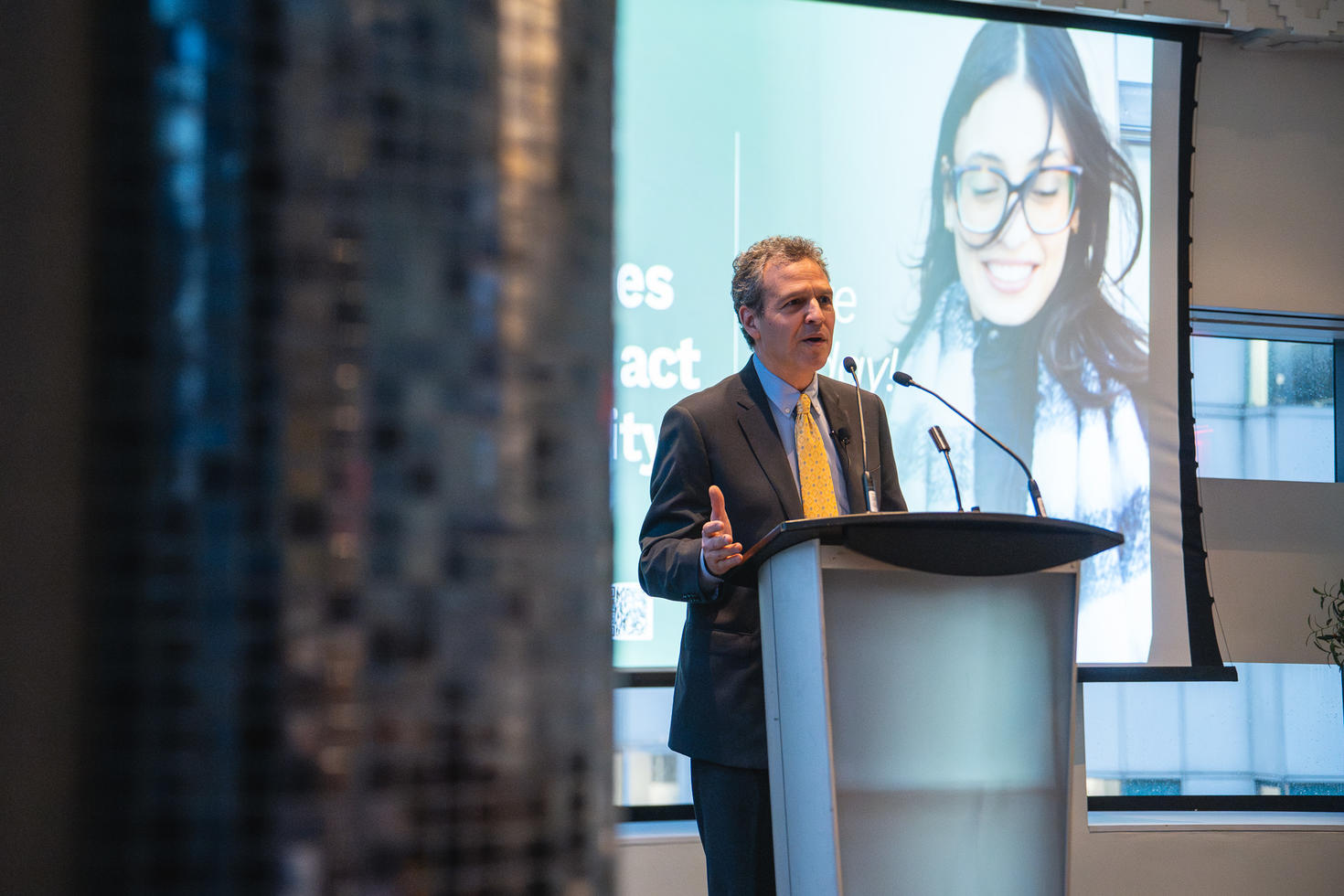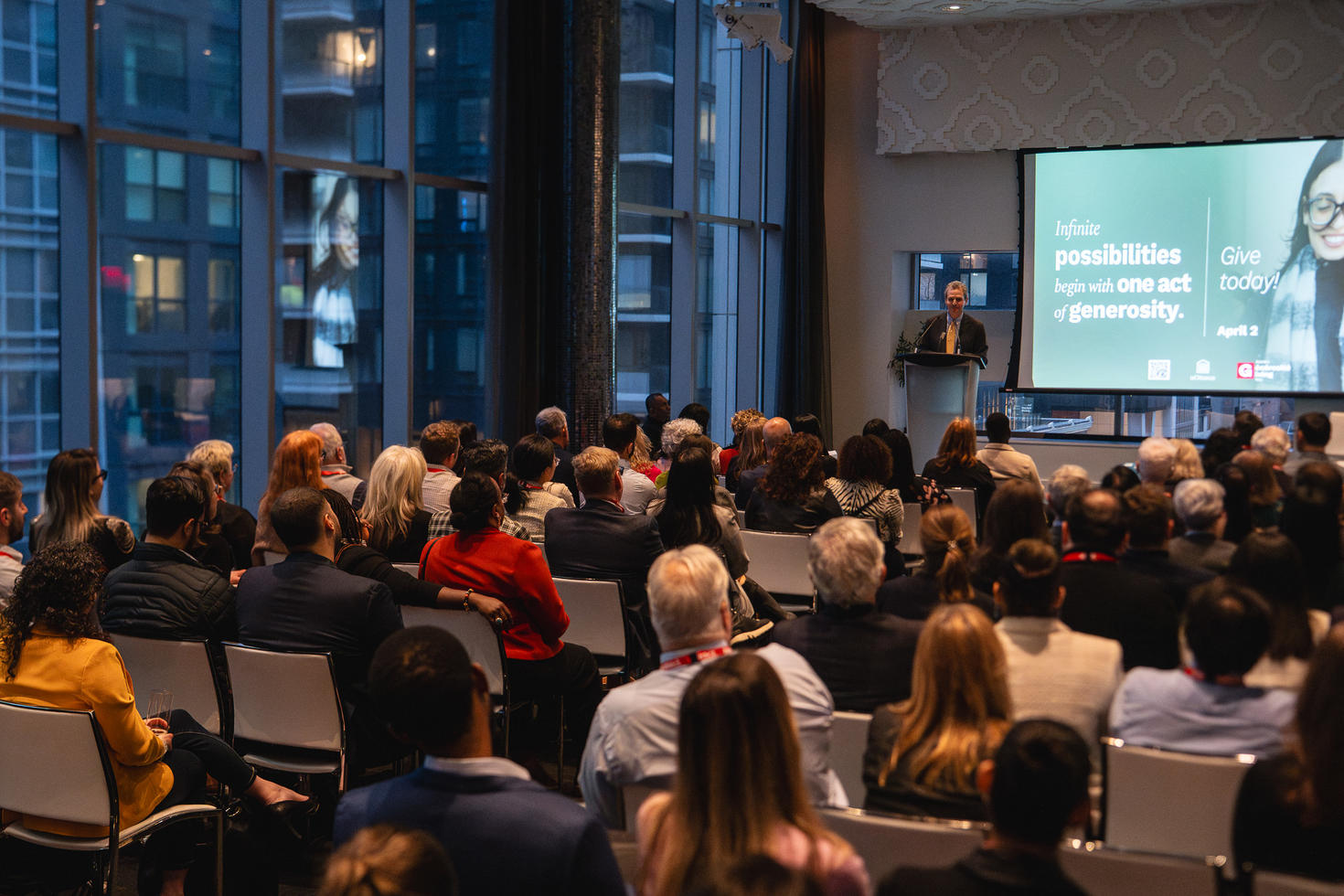“The world we’ve known is history,” he told alumni who braved snow, thunder and lightning to attend the talk.
Here are five key takeaways:
1. Canada Can No Longer Rely on the Old Order
Paris began by acknowledging the shift in Canada’s geopolitical environment. For generations, Canadians assumed the United States would remain a stable, friendly partner—a linchpin of an international order rooted in rules and cooperation. That assumption, he argued, has now collapsed.
“Every Canadian alive has thought of the United States as our ally,” Paris said. “We’ve disagreed before—over Iraq, over trade—but we believed in an enduring partnership. That no longer holds.”
The threat is not just policy volatility, but a broader erosion of the very institutions and norms that have benefited Canada—from trade agreements to security frameworks.
“Trumpism has shattered assumptions that guided U.S. policy for decades,” he said, warning that even a change in leadership south of the border won't easily reverse course.
2. Trumpism Is a Symptom, Not the Endgame
While Donald Trump remains the most visible figurehead of this shift, Paris argued the underlying forces run deeper.
“The United States is not going to snap back to its previous self when Trump leaves office,” Paris warned. “The question isn’t how long Trump will last—but how long the political conditions that made Trumpism possible will endure.”
As such, Canada must stop waiting for a return to ‘normal’ and begin rethinking its strategy—culturally, economically, and diplomatically.

3. Canada Needs a Dual Strategy: Survive and Adapt
Paris laid out a clear two-track approach for navigating this new reality: short-term resilience and long-term adaptation.
In the short term, he argued that Canada must stand firm and respond proportionately to U.S. provocations, particularly with tariffs, all while resisting being baited into reactionary responses. He emphasized the importance of deepening relationships with American allies within the U.S. – such as politicians at the municipal, and state-levels.
But survival is not enough, Paris underscored. Canada must also prepare for a future defined by unpredictability, and that could means diversifying its economic and diplomatic relationships. Paris spoke of the need to expand trade ties with Europe and Asia, invest in Canadian innovation, and build supply chains that don’t run exclusively through the U.S.
“We cannot be so dependent on one customer that they can threaten our economy or our sovereignty,” he said.
4. Defense and Sovereignty Must Be Priorities
Canada’s national security strategy also requires serious recalibration, Paris argued.
“We are not equipped to fight a war—and yet we may need to deter one,” he said. He called for a major reinvestment in the Canadian Armed Forces and for defense procurement to be tied to industrial and technological development at home.
Additionally, he urged Canadian policymakers to think of defence not just in terms of weapons, but as part of broader strategic partnerships, especially with Europe.

5. Universities Must Defend Truth—and Shape the Future
In a moment of reflection, Paris turned to the role of universities amid global upheaval. He described them as guardians of truth in an age of misinformation, stressing the importance of knowledge generation, evidence-based analysis, and fearless inquiry.
“Universities exist to create and disseminate knowledge—without fear of the conclusions they may reach,” he said. “They must stand up for the principle that facts matter.”
He also emphasized the importance of education in cultivating informed, responsible citizens. The work of training future leaders—those capable of navigating complex, unpredictable landscapes—has never been more important.
A Call to Action, Rooted in Optimism
Despite the gravity of the moment, Paris ended his talk with cautious optimism.
The true test of any nation is not how it thrives in good times, he said, but how it weathers the bad times and adapts to change.
“Canada can pass this test,” he said. “We’ve seen in recent months a quiet but powerful national resolve. That’s a tremendous strength.
